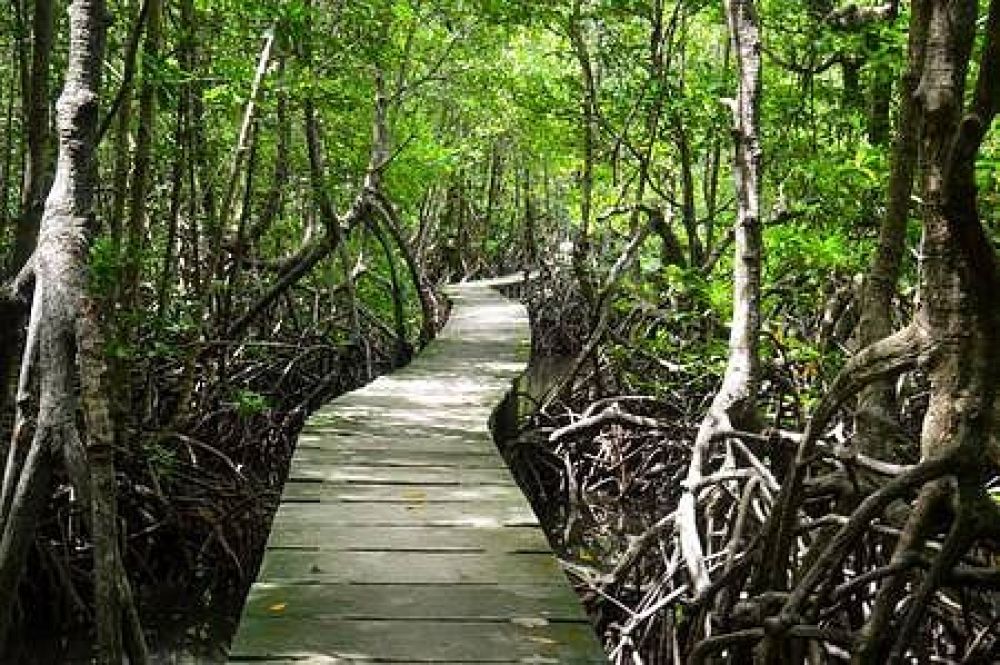

The history of tourism at the Peam Krasaop Wildlife Sanctuary in Koh Kong, Cambodia, is intricately linked to the country's overall development in the tourism sector. Found in the southwest of Cambodia, the Sanctuary covers an area of approximately 25,000 hectares and is known for its rich mangrove forests, diverse ecosystems, and unique wildlife.
The sanctuary was largely off the radar for international tourists during the latter part of the 20th century, mainly due to the political and civil unrest that plagued Cambodia. It wasn't until the 1990s, once the country began to stabilize, that tourists started trickero peattracting the more adventurous and eco-conscious travelers.
By the early 2000s, Cambodia's government and various NGOs began to recognize the importance of preserving the country's natural heritage and promoting sustainable tourism. The Peam Krasaop Wildlife Sanctuary became an important focus of these efforts. The establishment of visitor centers and boardwalks for mangrove forest exploration marked the beginning of organized tourism in the sanctuary.
In recent years, there has been a significant shift towards responsible and sustainable tourism practices. Tourists visiting Peam Krasaop are often drawn by the possibility of witnessing its unique ecosystem while contributing to the conservation efforts that protect the area’s biodiversity. Activities such as bird watching, kayaking through the mangroves, and learning about the local communities' way of life are particularly popular.
Digital marketing and social media have also played a big role in increasing awareness and interest in the sanctuary. High-quality images and engaging content shared online have inspired a growing number of people to explore this hidden gem of Cambodia. Moreover, with the global travel industry now focusing on off-beat and sustainable destinations, Peam Krasaop's reputation as an eco-tourism hotspot is likely to continue growing.
Developments in infrastructure, guided tours, and community-based tourism initiatives ensure visitors to the sanctuary contribute positively to the local economy and the preservation of the environment. The Cambodian government, along with international partners, continuously works on improving the sustainability of tourism in protected areas like Peam Krasaop Wildlife Sanctuary.
While tourism is a relatively recent phenomenon in Peam Krasaop Wildlife Sanctuary, it is a segment that is rapidly evolving. Tourists seeking authentic and ecologically sensitive travel experiences are increasingly including the sanctuary in their itineraries, ensuring that this pristine natural area receives the recognition and protection it deserves.